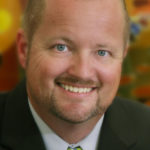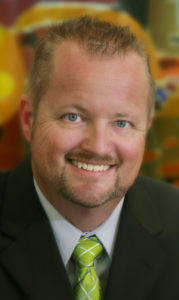
Trine University students can highlight text, take digital notes, or chat about their latest readings from their eTextbooks starting this spring semester. But first, one school official said, they need a lesson or two.
David Wood, dean of Trine’s School of Professional Studies, has helped oversee the college’s transition to eTextbooks when the spring semester starts Jan. 10.
All 530 Professional Studies students and 75 faculty members will use CafeScribe electronic textbooks, a part of Follet Higher Education Group, which first introduced its digital textbook format in 2007.
And while Trine students and educators have clamored for an all-eTextbook intiative, Wood said the university has taken a series of steps to prepare the campus community for nontraditional texts, and to allay worries of the few students and faculty that have expressed skepticism about the move away from hardcover books.
The school’s proactive approach in the months before eTextbooks were phased in included live webinars in which student and educator questions were answered and production of pamphlets that offer an overview of how to use the CafeScribe books.
More coverage of eTextbooks in higher education
Survey suggests college students still tepid on eBooks
Universities add eBooks to iTunes U
Those eTextbook lessons include teaching students how to use the devices’ “read aloud” feature that speaks the book’s words and could be most valuable for students with low vision.
“Change is difficult, and we understand that,” said Wood, who was director of academic technology and online learning at Trine before becoming dean last year. “Students have a very particular way of doing things.”
With most of Trine’s Professional Studies students in their mid-20s to early-30s, Wood said shifting to a brand new way of learning could be more challenging than it would be in a program with teenage students, although any group of college students would have a share of critics.
“Most of that [hesitation] comes from fear of, ‘What does this mean for me? Am I going to be able to handle the technology,’” he said. “We just want to make them feel comfortable with the new technology … and I think fear of change is big with adult students.”
Wood, who headed the distance education program at Indiana University-Purdue University Fort Wayne from 2001-07, said the economics of eTextbooks could sway some skeptical students into embracing the technology.
Trine students will save about 75 percent on textbook costs with the CafeScribe program, Wood said, and other parts of the university could soon adopt the eBooks as well.
“It’s student demand,” he said. “They want the cost to go down and they want more interaction and flexibility.”
The massive cost savings – especially as textbook costs skyrocket – could be a selling point for Trine and other institutions, but a survey released last fall suggests eTextbooks have an uphill climb before hardcover books are replaced on campus.
One in 10 college students said they have bought an electronic book in the past three months, and 56 percent of those who had purchased an eBook said it was for educational purposes, according to a study released last month by the National Association of College Stores (NACS) OnCampus Research Division, an organization that advocates for campus bookstores.
Only 8 percent said they owned an eReader device, according to the survey of 600 college students.
Still, Wood said there remains a sense of inevitability with eTextbooks. Trine is ahead of the higher-ed curve, he said, but other campuses won’t lag too far behind.
“We’ve heard students say how great it is that they don’t have to carry a duffle bag full of books anymore,” he said. “We really do feel like it’s going to be commonplace in the next couple years.”
- Research: Social media has negative impact on academic performance - April 2, 2020
- Number 1: Social media has negative impact on academic performance - December 31, 2014
- 6 reasons campus networks must change - September 30, 2014
